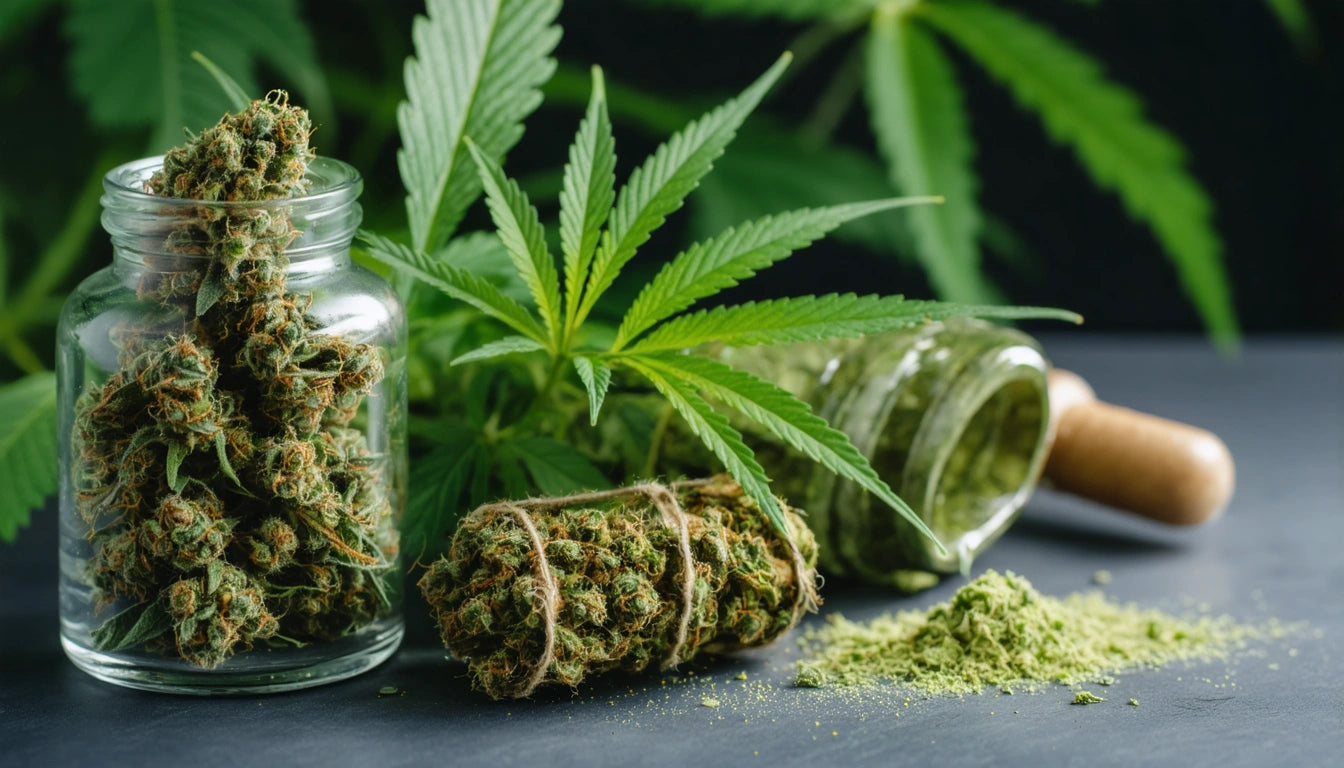Table of Contents
Can Marijuana Cause Digestive Issues?
The relationship between marijuana and the digestive system is complex and often misunderstood. While cannabis is frequently used to treat certain gastrointestinal conditions, it can also trigger digestive issues in some users. Understanding these seemingly contradictory effects requires examining how cannabis interacts with the body's endocannabinoid system, which plays a crucial role in gut function.
The Marijuana and Digestive System Connection
The human digestive tract contains numerous cannabinoid receptors that interact with compounds found in marijuana. This interaction explains why cannabis can influence various digestive processes, including:
- Gastric motility (the movement of food through the digestive system)
- Intestinal inflammation
- Nausea and vomiting reflexes
- Appetite regulation
Research indicates that THC and CBD, the primary active compounds in cannabis, affect these functions differently. This explains why some users experience stomach problems while others find relief from existing digestive conditions.
Cannabis and Diarrhea: Examining the Evidence
One common question is whether pot can cause diarrhea. According to multiple user reports and some clinical observations, cannabis can indeed trigger loose stools in certain individuals. Several mechanisms may explain this phenomenon:
Direct Effects on Intestinal Motility
THC can alter the rate at which the intestines contract, potentially accelerating transit time in some users. This acceleration can result in diarrhea, particularly in those with sensitive digestive systems. As explored in this article on cannabis and diarrhea, the effect appears dose-dependent, with higher doses more likely to cause issues.
Cannabis Hyperemesis Syndrome
Long-term, heavy cannabis users sometimes develop Cannabis Hyperemesis Syndrome (CHS), characterized by cyclic vomiting, abdominal pain, and diarrhea. This condition paradoxically occurs despite cannabis's anti-nausea properties and typically resolves only with cessation of cannabis use.
The Nausea Paradox: How Cannabis Both Helps and Hinders
Cannabis has a well-documented ability to reduce nausea and vomiting, which makes it valuable for chemotherapy patients and those with certain chronic conditions. However, some users report that pot can make you nauseous, creating what seems like a contradictory effect.
This paradox can be explained by several factors:
- Dosage differences (low doses may relieve nausea while high doses can trigger it)
- Individual variations in endocannabinoid systems
- Differences between acute and chronic use
- The specific cannabinoid profile of the product consumed
For those using cannabis products, proper storage is essential to maintain potency and prevent contamination that could exacerbate digestive issues. Many users choose high-quality storage solutions like mylar bags to preserve their cannabis and minimize exposure to elements that could affect quality.
How Consumption Methods Affect Digestive Responses
The method of cannabis consumption significantly impacts its digestive effects:
Edibles and Digestive Issues
Edibles are most commonly associated with digestive disturbances. When cannabis is metabolized through the digestive system, it produces different compounds than when inhaled. Additionally, the ingredients in many edibles (sugars, fats) can themselves cause digestive upset. Understanding edibles' digestive effects can help users minimize adverse reactions.
Smoking and Vaping
Inhaled cannabis typically causes fewer direct digestive issues, though the act of smoking can lead to air swallowing (aerophagia), potentially causing bloating or discomfort. Vaping generally produces fewer combustion byproducts but can still affect the digestive system through systemic cannabinoid effects.
Pre-existing Medical Conditions and Cannabis Use
Individuals with certain digestive conditions may experience different effects when using cannabis:
- Irritable Bowel Syndrome (IBS): Some find relief from symptoms, while others report exacerbation
- Inflammatory Bowel Disease: Cannabis may reduce inflammation but could mask important symptoms
- Gastroesophageal Reflux Disease (GERD): Smoking can worsen symptoms by relaxing the lower esophageal sphincter
Those with existing conditions should consult healthcare providers before using cannabis medicinally, as discussed in this overview of cannabis health effects.
Minimizing Digestive Symptoms for Cannabis Users
For those who experience digestive issues but wish to continue using cannabis, several strategies may help minimize symptoms:
- Start with low doses and gradually increase as tolerated
- Consider products with balanced THC:CBD ratios, as CBD may counteract some THC-induced digestive effects
- Stay well-hydrated, especially when using cannabis
- Avoid combining cannabis with known digestive irritants like alcohol or spicy foods
- Consider timing cannabis use around meals rather than on an empty stomach
- Explore different strains and consumption methods to find what works best
Understanding how cannabis affects metabolism can also help users make informed choices about consumption patterns and timing.
While research continues to evolve, it's clear that cannabis has complex effects on the digestive system that vary widely between individuals. By recognizing these potential issues and taking proactive steps to address them, users can make more informed decisions about their cannabis consumption.











Leave a comment
All comments are moderated before being published.
This site is protected by hCaptcha and the hCaptcha Privacy Policy and Terms of Service apply.